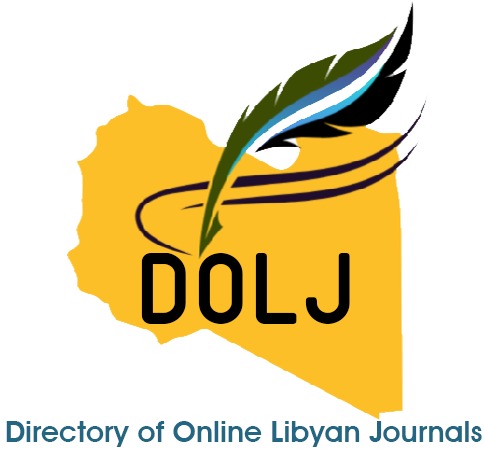Utilizing Resources of Drug Information among Community Pharmacists in Benghazi and the Surroundings
DOI:
https://doi.org/10.69667/rmj.25208Keywords:
Drug Information Resources, Benghazi And Its Suburbs, Community Pharmacy, Drug SafetyAbstract
One of the fundamental professional duties of all pharmacists is to provide Drug Information (DI). DI refers to the finding, application, and administration of information regarding the usage of drugs. Drug information includes everything from dosage and side effects to identification, cost, and pharmacokinetics. You may also need information about the body, health, or diseases to better utilize the drug information. The focus is on understanding how pharmacists’ access and apply information regarding drug use, interactions, side effects, and safety, especially during pregnancy and lactation. Additionally, the study explores pharmacists' confidence in digital and traditional DI sources and their critical role in disseminating drug information to the public. Aiming to identify common DI needs, frequently used resources, and pharmacists' trust in available information. This cross-sectional descriptive study investigates DI sources utilized by community pharmacists in Benghazi and its suburbs. It examines the types of DI resources they most frequently consult and the nature of questions they encounter in practice. The focus is on understanding how pharmacists’ access and apply information regarding drug use, interactions, side effects, and safety, especially during pregnancy and lactation. Additionally, the study explores pharmacists' confidence in digital and traditional DI sources and their critical role in disseminating drug information to the public. Aiming to identify common DI needs, frequently used resources, and pharmacists' trust in available information. Regarding data collection, it is conducted between June and October 2024 via an online survey distributed through social media platforms. The study engaged 252 pharmacists, primarily from urban areas like Benghazi and surrounding areas. The results show a predominantly young, female workforce with a high reliance on online DI resources, particularly Google, Medscape, and Drugs.com; moreover, tertiary resources like the "Drug Information Handbook" and "Basic and Clinical Pharmacology" are also referenced. Despite the scarcity of comprehensive textbooks in most pharmacies, 96% of pharmacists used the internet for drug-related inquiries, with 78% trusting this information for patient advice. Key questions pertained to drug safety during pregnancy, dosages, and drug interactions. In conclusion, the findings highlight the essential role community pharmacists play in providing drug information to the public, as well as the need for enhanced access to and training in reliable DI resources to support safe, informed pharmaceutical care in Libyan pharmacies.

Downloads
Published
Issue
Section
How to Cite
Similar Articles
- Wadiaa Benamer, Tamader Elghnimi, Mustafa Targhi, Loujain Husnein, Ussra Ben Enbaya, Women's Awareness of Contraceptives in Tripoli City: A Field Study , Razi Medical Journal: Volume 1, Issue 3, 2025
- Nahla Labyad, Masoud Kahmasi, Amjad Mansuor, Awareness, Perception, and Attitudes of Medical Professionals Toward Complementary and Alternative Medicine Devices in Rheumatism: A Survey of Tripoli Community Pharmacies , Razi Medical Journal: Volume 1, Issue 4, 2025 (October to December)
- Mahmud Abushhewa, Mohamed Agilla, Ashraf Naass, Khadega Alazoumi, Abdulati Salem, Taj Al-Din Jaber, Mohammed Abdulqadir, Knowledge, Attitude, and Practices about Antibiotic Misuse among Libyan Community: A Cross-Sectional Survey , Razi Medical Journal: Volume 1, Issue 3, 2025
- Nadia Alrawaiq, Fatima Younis, Mabrouka Ismail, Identification and Evaluation of Drug-Related Problems in Patients with Reduced Kidney Function: A Retrospective Study , Razi Medical Journal: Volume 1, Issue 3, 2025
- Sara Taeb, Ghufran Dehoom, Khuloud Ajaj, Comparison of the Efficacy of Inositol-Containing Medication Only versus Metformin and Inositol among Libyan Infertile Women with Polycystic Ovarian Syndrome , Razi Medical Journal: Volume 1, Issue 3, 2025
- Hosam Elarabi, Salem Salem, Rajaa Fadel, Wafa Abozaid, Abdullah Ahmad, Ahmed Shtawa, Moftah Ali, Assessment of Fluoride Concentration in Drinking Water and Its Correlation with Dental Caries in Primary School Children in Gharyan, Libya , Razi Medical Journal: Volume 1, Issue 2, 2025
- Faiza Nouh, Salima Elfagi, Mohamed Buzqeia, Ahlam Adel, Mawadda salah, Enas Hassan, Safa Edress, Determinants of Food Choices in University Cafeterias: A Cross-Sectional Study Among Public Health Students in Libya , Razi Medical Journal: Volume 1, Issue 4, 2025 (October to December)
- Raja Moman, Nouralhuda Altair, Abdulkarem Tamer, Amnnah Ghalbun, Nagat EL-Magrahi, Antibiosis of Antibiotics, Honey and Probiotics Related Bacteria to Diabetic Foot Infections , Razi Medical Journal: Volume 1, Issue 1, 2025
- Omar Alhaddad, Tasneem Shneshah, Safa Alzuwawi, Sarah Alkuawylidi, Lamis Mafa, Assessment of Hand hygiene knowledge Among Undergraduate Medical Students and Intern Doctors in Misurata University, Libya: A Cross-Sectional Study , Razi Medical Journal: Volume 1, Issue 3, 2025
- Salahaldin Alfurjany, Shamsi Shamsi, Huda Ibrahim, Hanaa Al-Saidi, Ghada Al-Amin, Comparative Antifungal Efficacy of Ketoconazole and Nystatin on Chlamydospore Production in Candida albicans Isolated from Oral Lesions in Cancer Patients , Razi Medical Journal: Volume 1, Issue 4, 2025 (October to December)
You may also start an advanced similarity search for this article.








